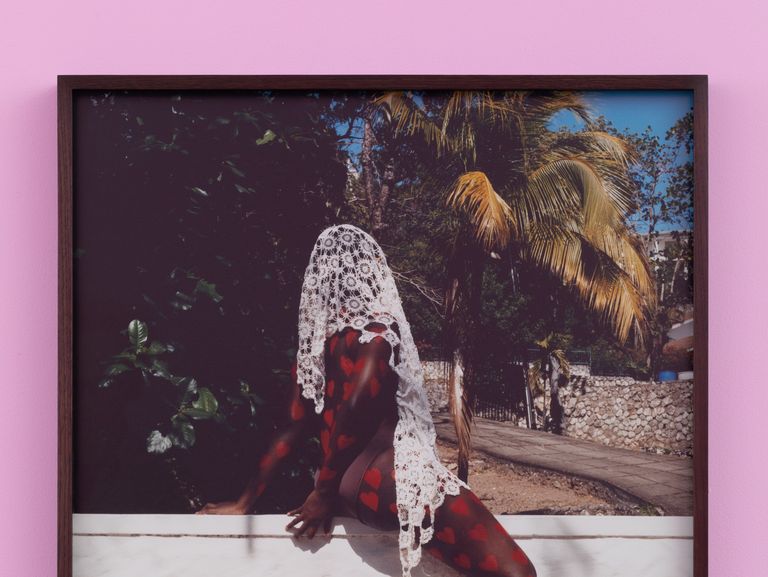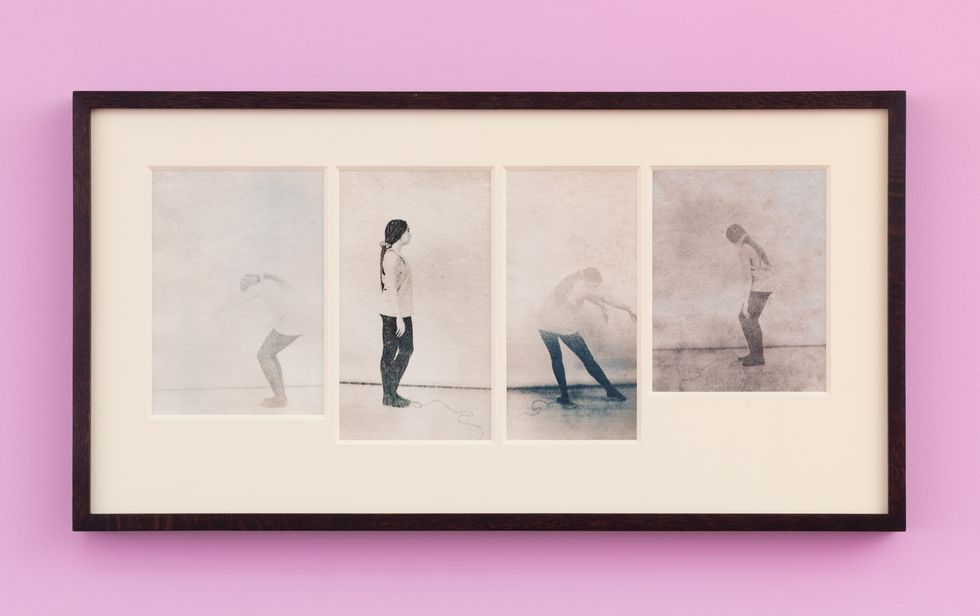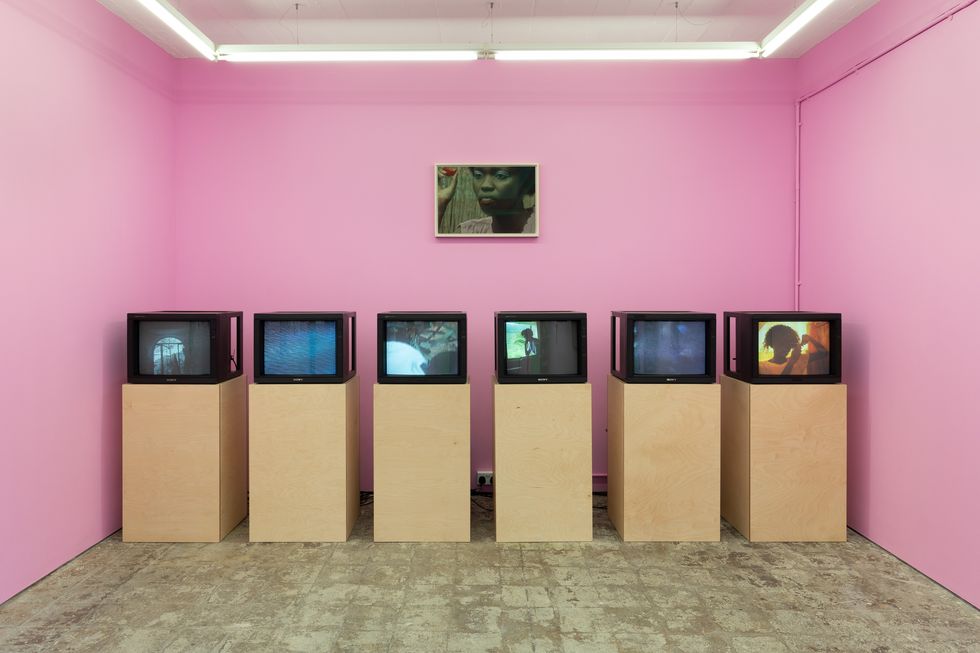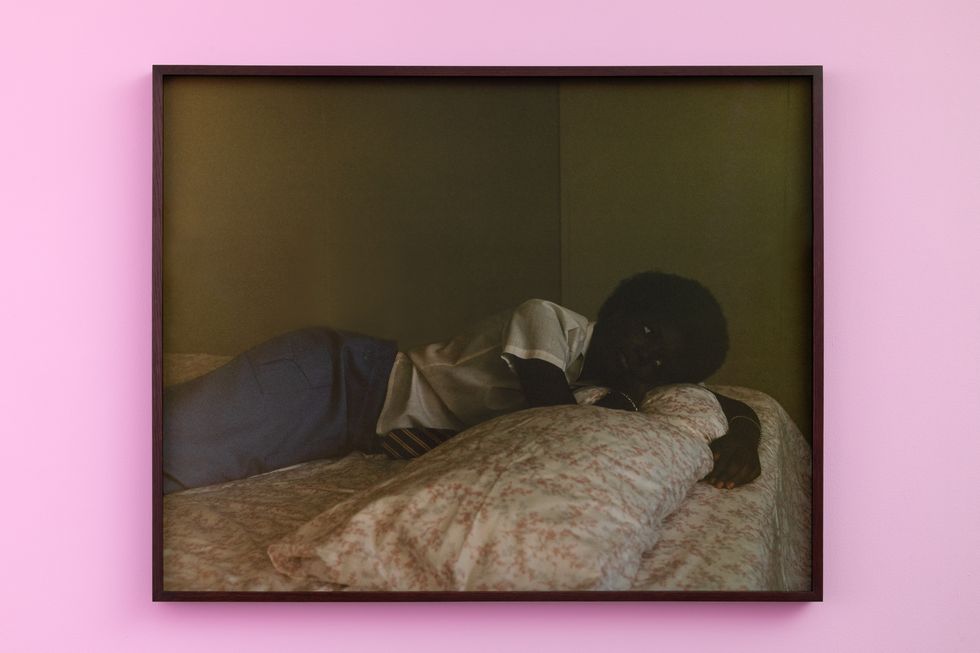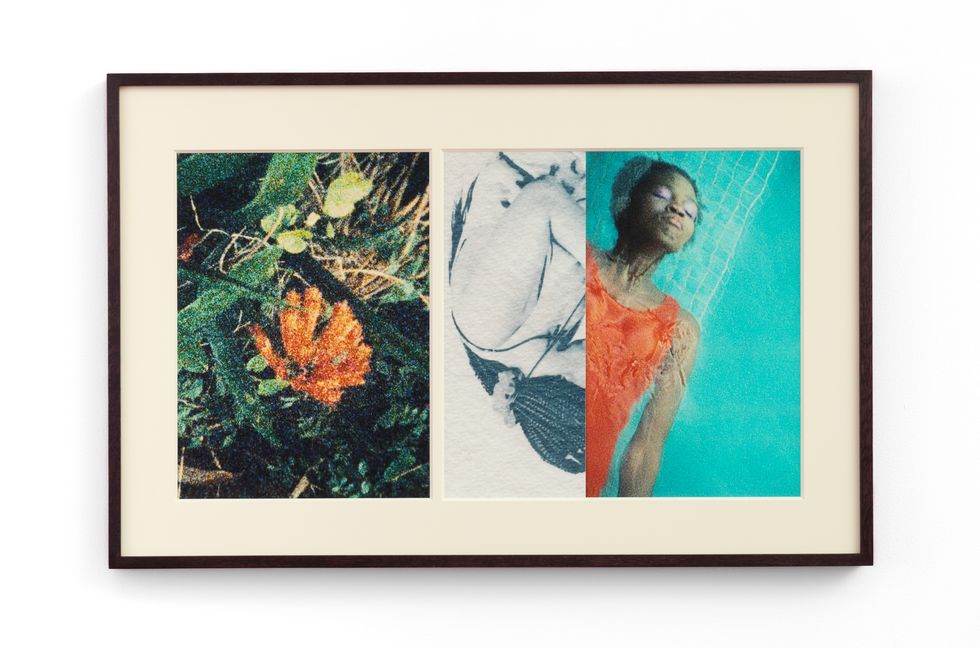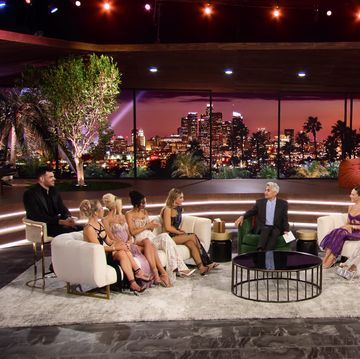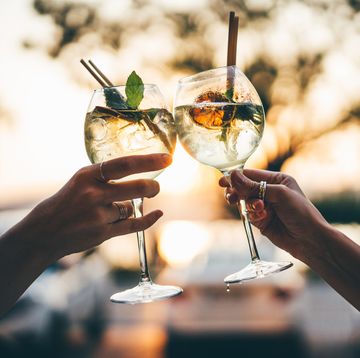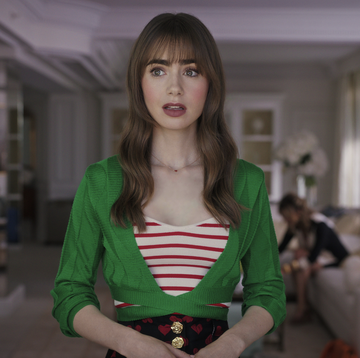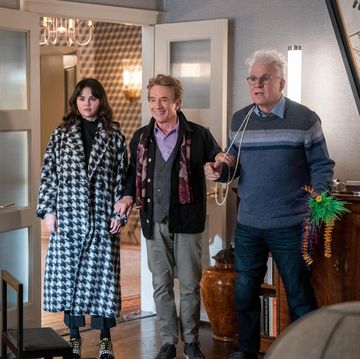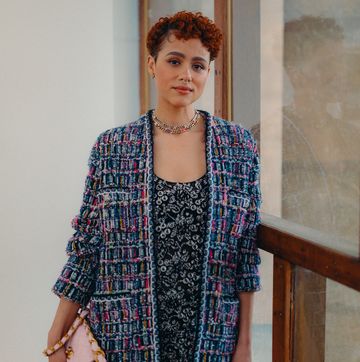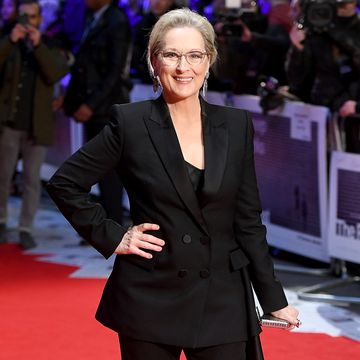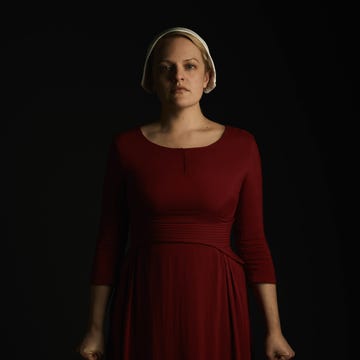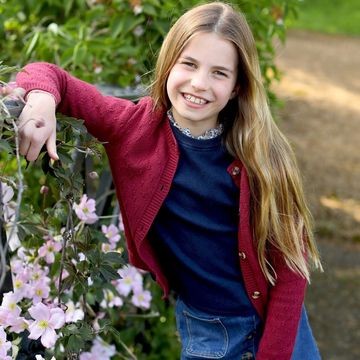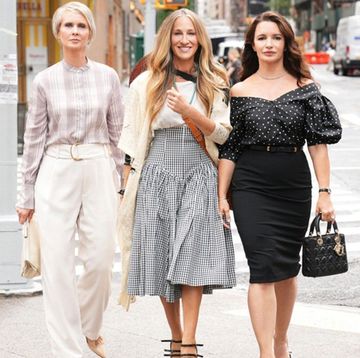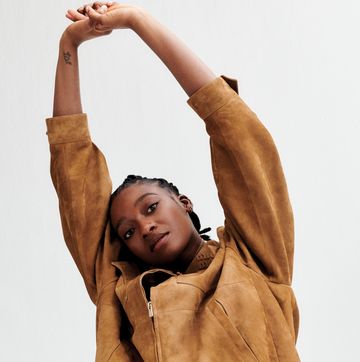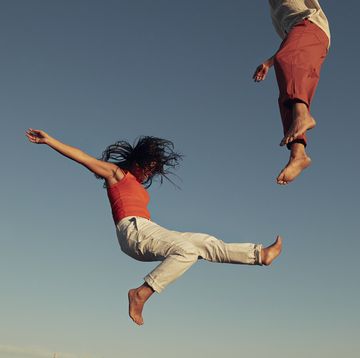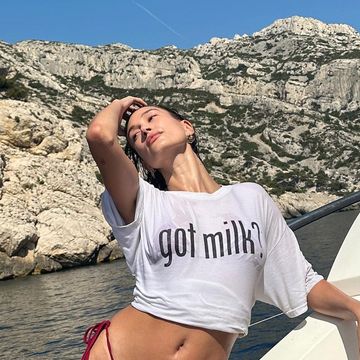Few would dare to lay out their flaws for the world to consume, but penning an introspective poem in her studio alone during the pandemic was the catalyst for Jamaica-born, London-based photographer Amber Pinkerton’s inaugural solo exhibition ‘Self Dialogues: Hard Food’.
‘I started this project during a time when I felt so out of touch with myself. I wrote it in one sitting, and I went and recorded it,’ she says, while sitting on a pink bench inside of the central London installation.
Pinkerton, who migrated from Jamaica to London seven years ago, used the exhibition as a means of exploring her identity. ‘I felt like I lost my entire sense of selfhood, and this project helped. I think sometimes, when you migrate, you don't even process what's going on right away. Well, at least for me, it kind of hit me later on in life.’
Entering the exhibition in the basement of the Alice Black Gallery, which opened on October 5th and extends to November 18th, you walk through beaded mahogany curtains, before being greeted by vibrant pink walls. ‘It’s supposed to feel as though you’re sitting in my brain,’ she says – the green plank encasing an iPad in the centre of the room is also a nod to the colour schemes of her childhood bedroom.
It’s a spirited welcoming. However, within a few minutes of wandering the space, you hear the sounds of Pinkerton’s monologue being played aloud. In it, she details her romantic failures and sense of dissatisfaction. It packs a heavy punch. ‘Hard Food’ is typically attributed to breakfast foods in Jamaica – a combination of boiled dumplings, bananas and yams. However, in Pinkerton’s world, it takes on new meaning alluding to the difficulties of hard-to-swallow realisations.
Six televisions on wooden plinths play a rotation of the six-minute dream-like short film, which the multi-hyphenate shot in Spain. ‘Writing the poem while I was in a relationship was hard for me, especially the love section,’ says the 26-year-old. Pinkerton’s most personal work to date, the immersive exhibition spans written word, video and photography, the latter is displayed on the walls in dark wood frames, an ode to Caribbean households.
Much of Pinkerton’s work is rooted in identity politics, and she often aims her point-and-shoot on topics which delve into womanhood, Jamaican culture and the Afro-Caribbean diaspora. On the rose pink walls is an image of a Black woman sitting on a brick wall, with a veil covering her face as she looks away from the camera. A smattering of red hearts engulf her frame. ‘I did this in Jamaica, and I was thinking about how abuse or relationships can reduce women’s sense of self. Whether verbal, physical, emotional or whatever it is, as well as ownership. It represents this tug of war between reveal and disguise.’
On the same wall, the soon-to-be University of Westminster BA photography graduate and former dancer turned the lens on herself for the first time, in a series that contorts stills of her dancing, with a cable representing an umbilical cord. ‘I thought it would be perfect to do this exercise that I used to do as a teenager, at Tony Wilson, which is this big dance school in Jamaica.’ Tapping into nostalgic memories, one image shows a subject lying on a bed sporting her old school uniform.
In the last several years, the photographers profile has been on the rise. Pinkerton was featured in Antwaun Sargent’s curated The New Black Vanguard in the Saatchi Gallery last year, and was included in two museum shows Female View: Female Fashion Photographers from Modernity to the Digital Age and Black Venus in Germany and New York respectively.
Staging her first solo show, ‘felt natural’. The photographer admits she’s always been a melancholic person. ‘I was always a lone wolf, a sad self-truth hard to admit’, she says in her poem, and has always used self-portraiture and poetry as an outlet which still sits on her Facebook.
‘I think the only discomfort is sitting with my voice in the company of others. It was nice to follow my intuition. Most of the work I've done since being in London focuses more on the livelihoods of other people and the socio-political context that they live. Self-portraits are something I dabbled with at age 13 when my interest in photography began so this felt like a full-circle moment and a way for people to get to know me.’
A fear of film almost halted Pinkerton’s ambitions to create a short, due to her veering away from the format in the last few years, but she persevered. ‘I told myself to film what I could and the subject feels like an extension of myself going through the motions and being alone.’
To add further insight to Pinkerton’s vision, there’s a 12-minute soundscape uploaded onto an iPad with looping research, with headphones and a QR code so visitors can listen at their leisure. ‘I worked with [producer and musician] Kwaku Konadu, it was the first time I collaborated with someone who knows me so well. My mum is in it and my brother’s too. I used to have a different family dynamic with them so it’s quite emotional to hear because I can feel the love in the relationship now that I couldn’t feel before.’
‘Hard Food’ is just the first instalment in a series which the photographer intends to continue. She’s already ruminating on ideas surrounding love and sexual desire next. ‘I'm excited to explore love and I’ve started looking into coloniality and cultural memory. Family and household tension is another topic I’d like to explore: there’s at least three or four more installations to come.’
Self Dialogues: Hard Food will run from 7 October – 18 November at Alice Black gallery.
